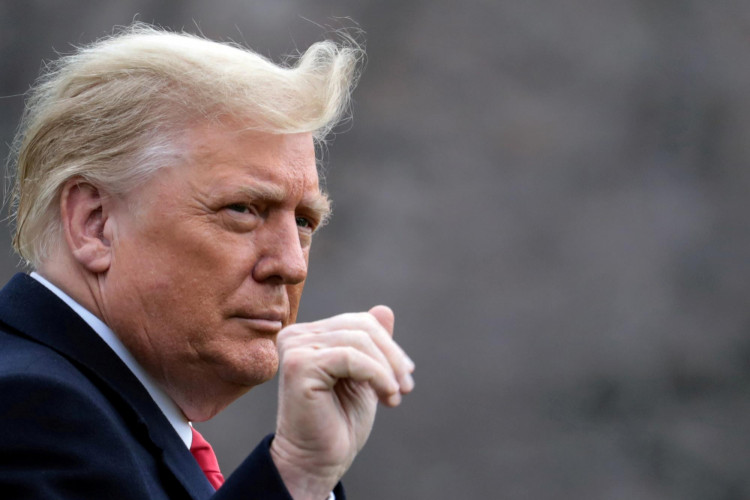Republican lawmakers are struggling to move forward with President Donald Trump's tax cut agenda as internal divisions over federal spending threaten to derail negotiations. Fiscal conservatives are pushing for deeper cuts before approving an extension of the 2017 tax cuts, creating a legislative deadlock that could impact broader discussions on border security, healthcare, and military funding.
House Speaker Mike Johnson, R-La., had initially planned for the House to take the first steps this week in advancing the bill. However, negotiations stalled as hardline conservatives rejected the proposed spending levels, demanding at least $2 trillion in budget cuts over the next decade. "We're stuck in the mud," Rep. Byron Donalds, R-Fla., said. "There's a lot of, what do they call it, paralysis of analysis? And I think at this point, we need to just make a clear decision."
The impasse is exposing fractures within the GOP, which controls both chambers of Congress and the White House. Some Republican leaders favor a more gradual approach, suggesting that tax cuts be extended for five years instead of ten to reduce their immediate fiscal impact. Others, including House Budget Committee Chair Rep. Jodey Arrington, R-Texas, are advocating for a broader compromise that balances spending cuts with key legislative priorities. "All those pieces are coming together in a very balanced way," Arrington said. "The give and take is there, you know. Nobody's going to get everything they want."
Trump has proposed eliminating income taxes on tipped wages and increasing deductions for state and local taxes (SALT), measures that would require offsetting revenue sources. Treasury Secretary Scott Bessent, in an interview with Fox Business Network's Larry Kudlow, emphasized the administration's commitment to making Trump's tax cuts permanent. "President Trump has a mandate. He came in to do big things. And one of the big things that this administration wants to do is make the 2017 Tax Cuts and Jobs Act permanent - and that permanency will continue to make the U.S. the number one economy in the world," Bessent said.
Bessent warned that failing to extend the tax cuts would result in "the largest tax hike in history," arguing that higher taxes would harm both economic growth and household incomes. He also suggested that lawmakers use "current policy scoring" instead of the standard "current law baseline" when evaluating the bill's budget impact, a move that could make the tax cuts appear less costly in official projections.
House Democrats remain firmly opposed to the tax package, meaning that Republicans must achieve near-unanimous support within their ranks to advance the bill. The growing divide between fiscal conservatives and moderates is complicating that effort. Rep. Ralph Norman, R-S.C., insisted that any tax legislation must contribute to reducing the national debt. "It's gotta be more than neutral," Norman said. "You gotta put money in the bank."
The legislative slowdown is prompting Senate Republicans to consider a different approach. Sen. Lindsey Graham, R-S.C., who chairs the Senate Budget Committee, signaled that the Senate may prioritize a separate border security bill before tackling tax cuts. "I've always believed that one big, beautiful bill is too complicated," Graham said. "What unites Republicans, for sure, is border security and more money for the military. It's important we put points on the board."
Johnson quickly dismissed the idea of the Senate taking the lead on tax policy, arguing that the House must drive the process. "It's a very different chamber with very different dynamics. And the House needs to lead this if we're going to have success," Johnson told reporters.
Despite the infighting, House Republicans are under pressure to deliver a legislative victory on tax policy before key provisions of the 2017 Tax Cuts and Jobs Act expire in 2025.






